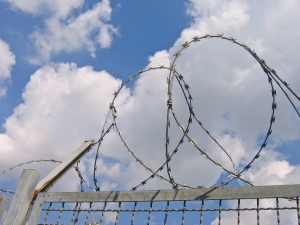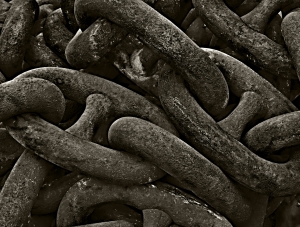It’s something you just don’t think about on a daily basis: how many slaves do you unknowingly use in a day? And of course who would want to think about the question. It’s not flattering to think that even in today’s Western society after decades and centuries of struggle to abolish tyrannical laws, legislation, and prejudices that slavery as an institution could still be around and that each individual passively participates in sustaining it.
Hopefully, if you ask anyone whether or not they would give up their material possessions to help a child sold into slavery, who is continually beaten, raped, and have an overall lower living condition and life expectancy that they would affect change. Well, the Oakland-based nonprofit Slavery Footprint aims at informing everyone about how slavery still exists. Not for the purpose of making us or even the corporations feel guilty, but simply unveiling the knowledge so that we might change as a society.
While they’re not asking you to give up your daily possessions, Slavery Footprint was established as an organization to inform the public of the choices in what they buy so that they could be informed consumers. Already, companies have received hundreds of thousands of letters and phone calls asking them to uncover their labor practices not only in the West but everywhere.
Created by Justin Dillon in 2011 after he directed the documentary Call + Response, which initially uncovered the story of how modern society runs on the sweat of 27 million slaves, Slavery Footprint is a website that allows each individual who visits the website to take a survey of what products they use on a daily basis so that they’ll know how much of an impact slavery still has.
Dillon runs Slavery Footprint with the philosophy that ignorance only perpetuates more slavery, and that unless we address the issue of corporations using questionable labor practices, then the system won’t change. But rather than identifying a specific brand or company, Slavery Footprint merely establishes the initial link between products we buy and the slave labor that goes into making them. The reason for this is that it doesn’t narrow down the concern for consumers to zero-in on specific companies, but rather highlights the entirety of the system at play—since it is not just a handful of companies, but everyone.
 And these aren’t just products that we use semi-often, but things we use on a daily basis with almost little to no thought about what it took to make it. E.g. computers, laptops, toothpaste, beauty products, coffee, lamps, desks, (smart)phones, books. You get the picture. On any given day, you will have probably used enough products that took on average 25 slaves to make.
And these aren’t just products that we use semi-often, but things we use on a daily basis with almost little to no thought about what it took to make it. E.g. computers, laptops, toothpaste, beauty products, coffee, lamps, desks, (smart)phones, books. You get the picture. On any given day, you will have probably used enough products that took on average 25 slaves to make.
Once you know, you can’t unknow. In a society that prides itself for our unprecedented individual liberty, we should be working harder than ever to ensure that everyone, no matter their nationality, creed, race, religion, gender, should be allowed the same opportunities and not forced to work and continually exploited just so we can enjoy cheaper prices.
The website offers visitors advice on how they can help end global slavery, and not just monetarily, but by simply knowing you can then start making informed decisions about the products you buy, in which awareness will hopefully either bankrupt companies that do use unconscionable labor practices or force them to change and to ensure that their products aren’t made with slave labor.
If you’re ready to give your support, click here for their website —> Slavery Footprint. Click here for their —> Fan Page.
—————————————————————————————————————————————————————-
** Thank you for reading and be sure to surf our website for other articles of your interest!
Slavery Footprint,





